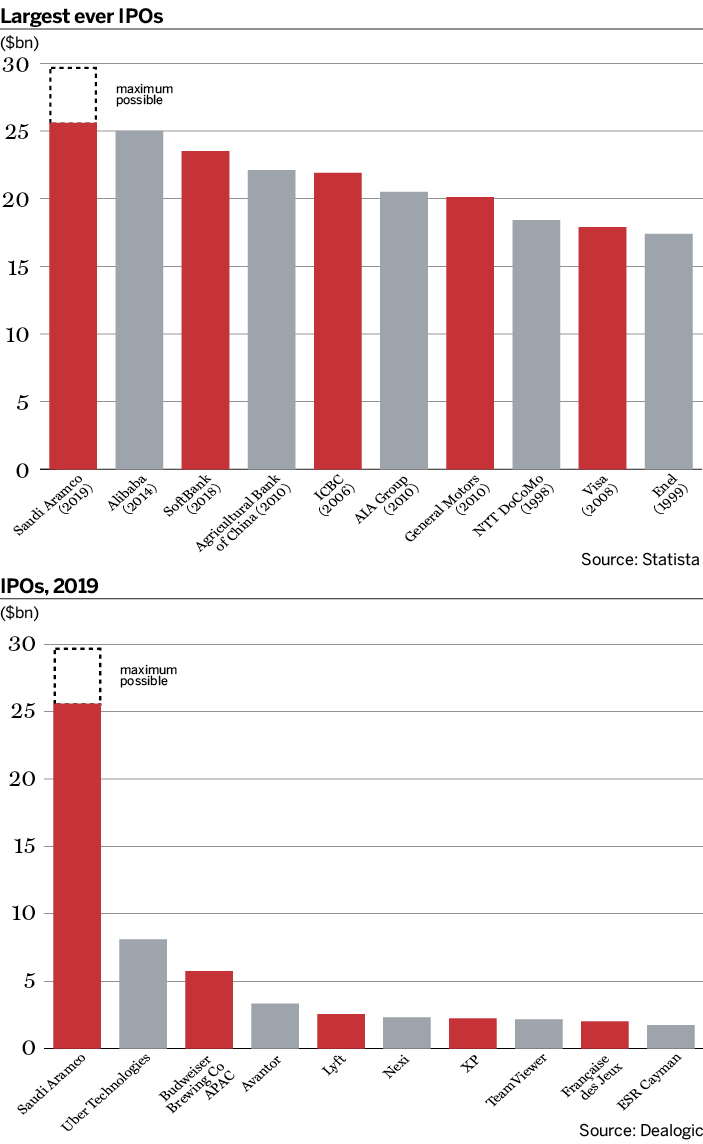The listing of giant oil company Saudi Aramco broke several records and quadrupled the market capitalisation of Saudi Arabia’s stock exchange. Marie Kemplay reports.
In December 2019, Saudi Arabia raised a mammoth $25.6bn via the long-awaited initial public offering (IPO) of state-owned oil company Saudi Aramco. This record-breaking figure is also likely to rise as the company has reportedly exercised the so-called ‘greenshoe’ option, which allows it sell up to 15% more stock. If the option is exercised in full, it would see the final figure raised via the IPO reach $29.4bn (at the time of going to press, the final figure had not been confirmed).
The Saudi Aramco deal has replaced that of Chinese e-commerce giant Alibaba as the largest IPO ever carried out. The Alibaba flotation, which raised $25bn, had held the record since 2014, while Agricultural Bank of China’s $22.1bn IPO held the record between 2010 and 2014.
The Aramco IPO dwarfs all other IPOs in 2019. The next largest was Uber’s in May, which raised $8.1bn, followed by Budweiser Brewing’s Asian arm in September, which raised $5.75bn.
Saudi Aramco chose to sell just 1.5% of its shares at an initial price of SR32 ($8.53) and giving it an opening market capitalisation of $1700bn. But within days of trading in shares beginning, as of mid-December the market capitalisation had reached more than $2000bn, reportedly Saudi Arabia’s target valuation for the company and an aim that had drawn some scepticism internationally. It is now by far the world’s most valuable company by market capitalisation; Apple and Microsoft had valuations of $1180bn and $1150bn, respectively, in mid-December.
Saudi Arabia chose to list domestically via the Tadawul, the country’s sole stock exchange, in Riyadh. It was a big day for the bourse, which has only been operating since 2007 and lists just over 200 companies (the New York Stock Exchange, by comparison, lists more than 2400). According to its own figures, the Aramco IPO saw the Tadawul’s total market capitalisation increase overnight from $509bn to $2300bn, putting it in contention to be one of the world’s 10 largest trading venues by market capitalisation.
The sale became more focused on local Gulf investors than initially envisaged, after plans for investor meetings and roadshows in Europe, the US and Asia were abandoned in November following international investors' scepticism about the country’s target valuation. Saudi Arabia may decide to offer a secondary listing on international markets in the future to increase global ownership levels.



